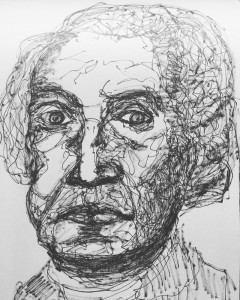George Washington was not an intellectual giant like Benjamin Franklin, John Adams, Thomas Jefferson, or James Madison. Compared with most other founders, he was not well educated (he attended school for only about five years), and, unlike many of them, he disliked abstract philosophical discussions.
His moral character, especially his refusal to yield to temptation, set him apart from most others in the late 18th century. To many, the crowning achievement of Washington’s character was his simultaneous resignation in 1783 as the commander in chief of the American army and his retirement from the world of politics. Throughout the Western world, his unprecedented relinquishing of power (which he did a second time when he declined a third term as president) was widely heralded.
Unlike other victorious generals, he did not expect a political or financial reward for his military exploits. The Virginian had a sterling reputation for integrity and honor, dedication to duty and his country, and remaining above the political fray.
Many admirers considered Washington’s self-control the key facet of his character. He could master events because he had mastered himself. Despite being surrounded by fear, despair, indecisiveness, treason, and the threat of mutiny, he remained confident and steadfast.1
As a family law attorney, I recognize that George Washington’s qualities would serve most attorneys and clients well. His ability to stay calm in a storm is quality to which we can all aspire.
1 This blog contains excerpts from: Smith, Gary S. “The Character of George Washington”. The Center for Vision and Values, Grove City College. March 15, 2010.



